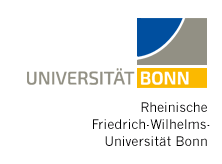A computational tool for Grad-seq data analysis
RNA-RNA, RNA-protein and protein-protein interactions play an important role in post-transcriptional gene regulation in all living species. A global map of such interactions is an important step towards understanding the regulatory networks of an organism in more holistic terms. Grad-seq is a high-throughput profiling approach for the organism-wide detection of these interactions in which molecular complexes are separated in a gradient by shape and size. The Grad-seq approach offers a way to study the role of different RNA and protein components in various macromolecular assemblies by analyzing fractions of a glycerol gradient with high-throughput sequencing approaches and mass spectrometry. Developed in the Python programming language, GRADitude is a modular tool that performs all the steps required to translate sequencing and mass spectrometry data into a list of potential molecular complexes. It offers a wide range of visualization options that make it easier for users to gain a deeper understanding of the data.
ZB MED’s role in the project
ZB MED is developing GRADitude in close collaboration with experimental partners. Its goal is to facilitate the analysis of Grad-seq data.











